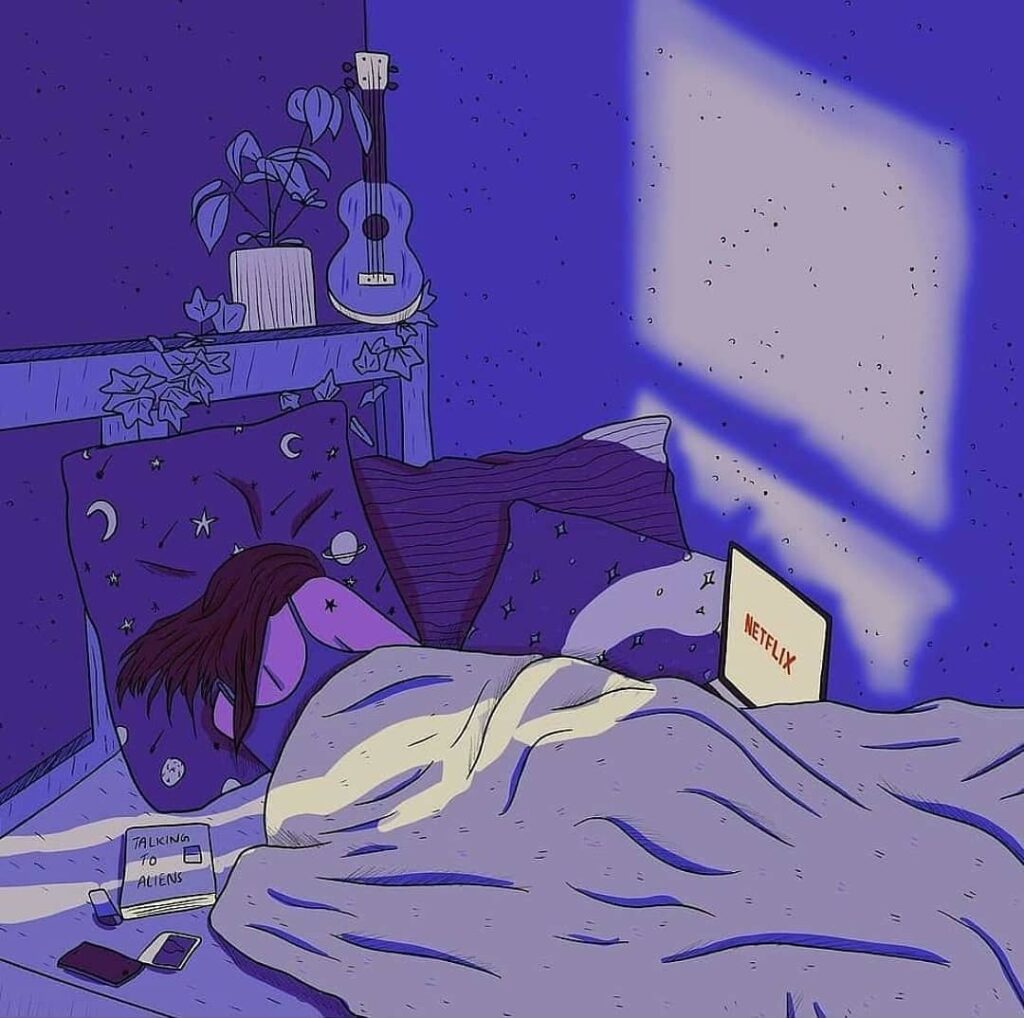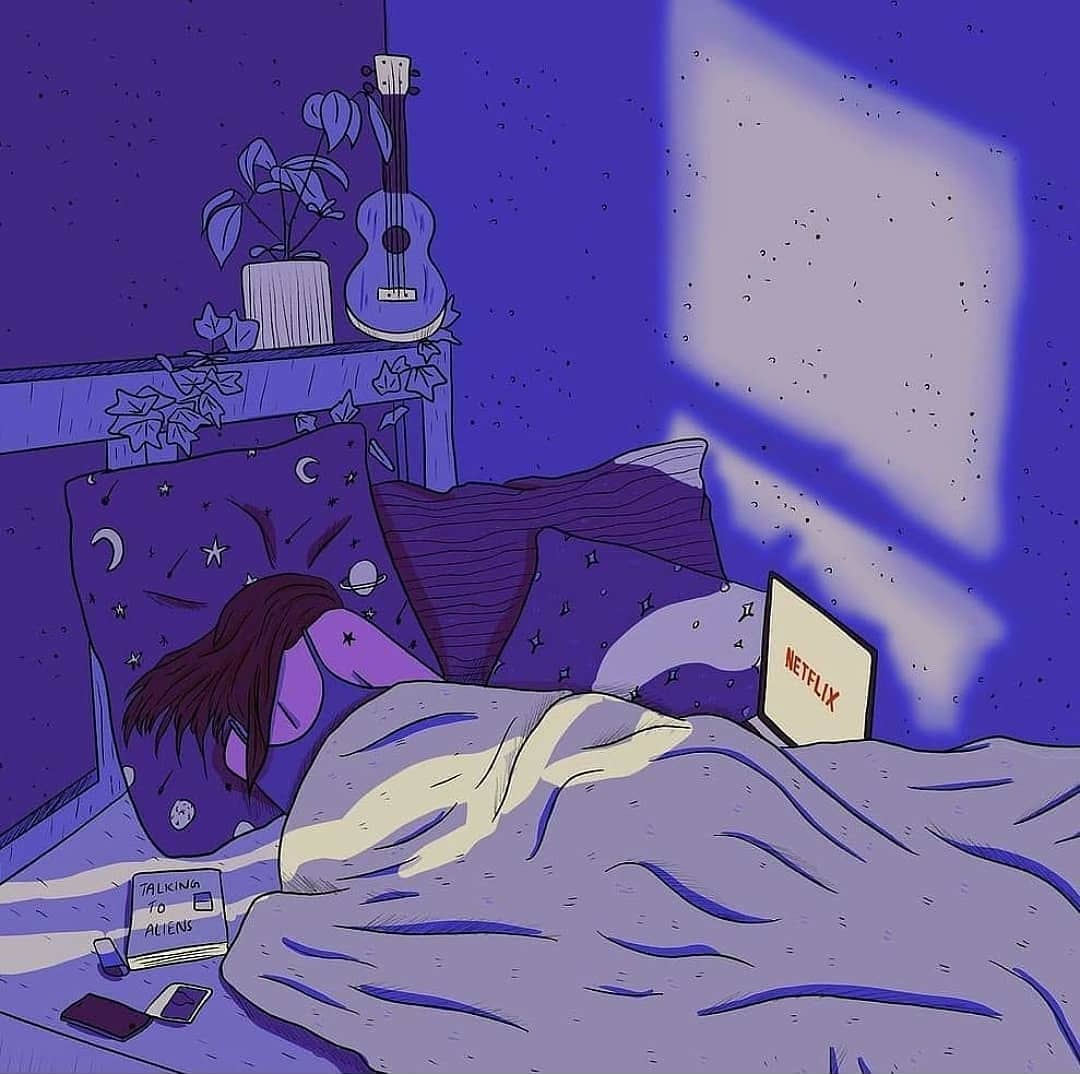
Blearily rubbing my eyes, I click ‘Next Episode’ and hum along to my favourite theme song. The screen’s glare is jarring at 3 am, exhaustion envelops me, cosier than my blanket but I’m not ready to bid adieu to the outlandish sitcom characters on my screen. Laughter accompanies a heavy dose of guilt, every episode I binge through is an additional hour of grogginess during lectures. The next morning as I gulp down sickeningly sweet coffee, burning my tongue in the process, I’m cursing my hubris for having stayed up so late, only to repeat it that night.
If the above experience resonated with you, then you’ve also been a victim of Revenge Procrastination. Revenge bedtime procrastination describes the decision to sacrifice sleep for leisure time. It’s an increasingly common phenomenon seen amongst adolescents, college students and young professionals, that stems from having a daily schedule lacking in free time.
This revenge is directed towards a strict schedule that permits little or no leisure time. Revenge sleep procrastination appears to be tied to significant daytime stress. For many people, sleep procrastination may be a response to extended work hours that, if combined with a full night’s sleep, leave virtually no time for entertainment or relaxation. It’s hardly a surprise that women and students are the most likely sufferers, as confirmed by a study.
Initially expressed by people in China, the idea has resonated across the globe and gained additional traction in the unprecedented pandemic hellscape of COVID-19 and stress associated with stay-at-home orders.
Surveys have found that working from home has often extended working hours, and women, in particular, have had a reduction in normal leisure time since the pandemic started. Online classes that stretch the day in front of screens and are bereft of campus life are poignant factors contributing to revenge sleep procrastination.
These factors trigger stress and sleep procrastination and is a leading cause of the fact that nearly 40% of people have had sleeping problems during the pandemic.
Unfortunately, unlike the professions of angsty characters in historical fiction, this form of revenge only harms the doer. A shuffling, irritable zombie state during the day aside, sleep deprivation over the long term can cause permanent damage to the body.
People end up more susceptible to cardiovascular problems and metabolic disorders, like diabetes. In addition, and especially concerning in light of COVID-19, insufficient sleep can erode immune function and reduce the effectiveness of vaccines.
Insufficient sleep degrades thinking, memory, and decision-making. Sleep deprivation also raises the risk of daytime sleepiness, which can harm productivity and academic achievement while heightening the risks of drowsy driving.
If you’d like to break this cycle of revenge wreaking havoc on your daily life, sticking to a consistent bedtime and wake-up time, including on non-working days is key. Avoiding alcohol or caffeine late in the afternoon or evening and stopping the use of electronic devices, including cell phones and tablets, for at least half an hour, and ideally longer, before bed are also helpful tips.
Save your revenge for the classmate who has an important doubt just as the lecture begins to wind up, or the person in line who stole the last cupcake from you, or the tumultuous whims of college administration that change class schedules, and go to bed early tonight.
Written by Kriti Gopal for MTTN
Edited by Mihika Antonia Dean for MTTN
Featured image by @3am.in.jupiter (Instagram)
Artwork from Pinterest


Leave a Reply
You must be logged in to post a comment.